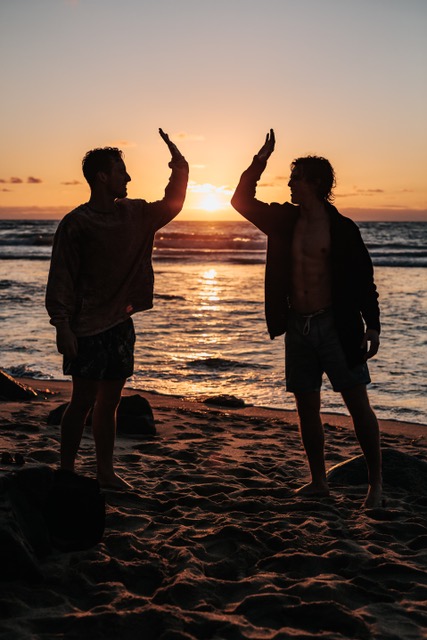Hi folks,
The concept I’m writing about in this book is something I’ve found necessary to involve myself in for the development I’ve always wanted in my life but couldn’t obtain by me trying hard, by myself, to get it—that healing, maturing, and becoming effective can only happen through emotional and relational connections with other people.
This first article is an excerpt of the book’s introduction. I hope it’s encouraging. If you have a response, I’d like to hear it.
An Excerpt from My Life
That afternoon I had to make it to my session. Several interruptions gave me an excuse to cancel. But I didn’t.
I couldn’t.
I didn’t want to go through this pain anymore. And I couldn’t keep doing it alone. I needed help. My emotional rage was out of control.
Most people didn’t know this about me. I was an ordained minister and a licensed mental health counselor. My heart was sincere, and in public I kept my composure, but in private, when no one was around, an angry impulse would sneak up out of nowhere. The smallest thing set me off—dropping my keys, bumping my head, getting an automated customer service recording that wouldn’t let me speak to a real person.
It happened whenever my unconscious and unprocessed feelings of being disregarded as a child got triggered again. Any unwanted response that got filtered to me as “I don’t care how you feel!” would send me into this cursing rage.
It felt embarrassing to admit at my age. I felt like I should have been more mature by now and have better control over this. But no matter how hard I tried, how much I prayed, or how sincere I was, nothing changed. That’s because up until this turning point, I was in isolation. I did everything myself and relied very little on anyone else.
A good friend and sales buddy for the manufacturer we represented used to say, “I want to be a part of a team.” His enjoyment of relationships made him effective with customers, and that’s the collaborative interaction he wanted with our sales team. But that always felt “wussy” to me. Doing something by myself felt stronger. “All I need is God” was my internal mantra. But in reality, that was just a guarded excuse to keep myself isolated from people so I couldn’t get hurt. It felt safer to operate alone, but that didn’t help me get better.
I woke up in a bad mood the day of my appointment. It progressed into a consuming anger and then cursing at God. I had been in this dark, negative place before, but never to this degree. It felt unbearable. I wanted to die. I was too tired to go through it again, and I just wanted it to end. I actually prayed for that to happen but wasn’t convinced my final resting place would be any better. So, I surrendered and went to my appointment.
There, in that angry, cursing pain, my mentor and I started our session. I shared some thoughts but mostly my feelings. I didn’t know if what I said was in the right order. I just knew I had to talk with someone. He asked a few clarifying questions, but mostly listened. It felt good to experience someone with me. Nothing got resolved that first day, but at least I didn’t feel alone.
From there—in continued sessions—the emotional processing led to a greater awareness of where all my pain was coming from, what I had been doing to try and get rid of it, and how that effort was covering up my true self and what it was crying out for.
And I can draw an unbroken line from that first session to the book I’m writing. I hope it encourages you to put your protective guard down; find a trusted community to share with; let yourself receive the acceptance, validation, and affirmation that your heart is crying out for.
I’ve experienced it, and neuroscience now proves it. The human brain operates best when it emotionally connects with another brain—feels seen, known, and enjoyed by another person.
That’s what I want for you!
An upcoming article: I recently experienced how attachment pain and unprocessed trauma can block our longed-for receptivity of God’s and other’s love. And it can block the awareness of our true identity, for decades, without us realizing it. I’m working on that chapter now: “What Gets in The Way: Finding the Link Between Childhood Wounds & Unwanted Adult Behavior.”
Let me know how this article affects you! Forward it on to a friend if you think they would benefit from it.
Thanks! Talk with you on the next article.
Doug
